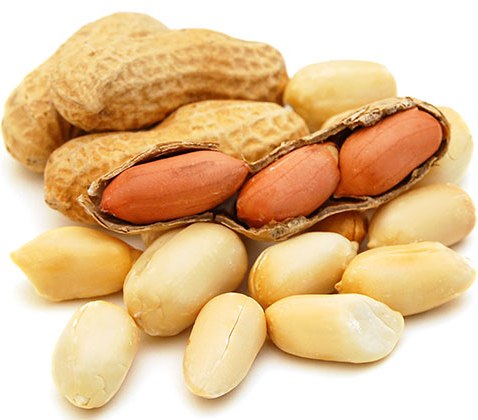Peanut Nutrition Facts:
| Calories in | 100 g |
| Calories , Kcal | 567 kcal |
| Fat | 49 g |
| Carbohydrates | 16 g |
| Protein | 26 g |
Useful properties of peanuts
In peanut contains a whole set of vitamins – A, Group B, D, E, PP. Peanuts are comprises more than a third of protein and more than half of vegetable fats, but, surprisingly, there is no cholesterol in the peanut.
The use of peanuts leads to the maintenance of an optimal level of sugar in the bloodstream. For this reason, in small volumes peanut is useful for patients with different forms of diabetes mellitus. Also peanuts are useful in the content of magnesium compounds, normalizing blood pressure and metabolic processes in the body as a whole. According to the results of numerous studies, peanut consumption in reasonable amounts reduces the risk of heart attack and other cardiovascular diseases.
Along with other uses, peanut helps strengthen the human immune system. The use of peanuts helps the body in the fight against infections and weakening caused by everyday stresses. Extremely useful peanuts in the fight against depressive states, because it contains a natural amino acid tryptophan, from which the body synthesizes serotonin, a special hormone that lifts the mood and eliminates depression and phobia.
In addition, the objective use of peanuts keep it niacin – vitamin B3, which is necessary to ensure normal functioning of the brain, improve memory and ability to concentrate.

